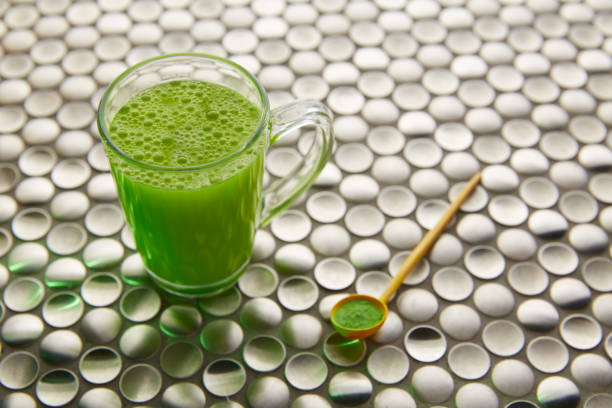According to anecdotes found online, drinking lukewarm lemon water is energizing, detoxifying, and soothing.
Lemon juice and water are both healthy on their own. If you combine the two, will they be healthier? The quick answer to this question is no!
Is it possible to get a long-lasting health problem from drinking lemon water? It’s unlikely.
Read more: I’ve always wondered: why does lemon juice lighten the colour of tea?
It contains vitamin C, but do you need extra?
Vitamin C is a very important nutrient in lemon juice. A vitamin C deficiency has been known for a long time to cause scurvy. The condition is often associated with sailors in the past who did not have access to fresh fruits and vegetables during long voyages.
In recent years, Australia has seen a decline in vitamin C levels, particularly in patients admitted to hospitals and those referred for surgery. This may not be representative of vitamin C levels in the wider community. The factors that contributed to the ill health of this group could have also affected their vitamin C consumption.
Drinking lemon water can help if you are low in vitamin C. Vitamin C begins to degrade between 30-40degC. This would have only a slight impact on the levels of your warm water, but not too much.
You will excrete any excess vitamin C or oxalate in your urine if you consume enough vitamin C.
Read more: Explainer: what is scurvy and is it making a comeback?
What else can lemon juice do?
Research has shown that lemon juice can have many other health benefits.
A study found that those with high levels of blood lipids (cholesterol) who drank the lemon juice for 8 weeks did not experience any change in their blood pressure or weight.
In another study, drinking 125mL of lemon juice with bread resulted in a slight decrease in blood sugar levels when compared with drinking water or tea with the bread. A small study found that drinking 30g of lemon juice and water before eating rice had similar results.
Lemon juice can have a negative impact on blood sugar levels when combined with carbohydrates. Shutterstock
Researchers have found that the acidity in lemon juice can inhibit a salivary enzyme (salivary Amylase) which normally breaks down starch within your mouth. It takes longer for the starch to be broken down into glucose in the lower gut and then transported through the intestine to your blood. This may reduce blood sugar spikes in people with diabetes. However, it hasn’t been tested.
Other studies indicate lemon contains nutrients that can help protect against diabetes.
You can probably get the same benefits if you add lemon juice to food.
What about detoxing?
Lemon water does not “help” your body detoxify. Lemon water breaks down toxins and excess nutrients in the body’s liver. It then eliminates these molecules through the kidneys and into your urine.
Vitamin C does not help with this. Any claims that lemon water cleanses your body are false. If you need to detoxify, you may need a liver replacement.
Does lemon juice energise you? The short answer to this question is no, aside from the placebo effect that comes with drinking something you think is good for you. You may feel tired if you don’t get enough nutrients.
As for the soothing effect of lemon water, some people prefer warm drinks, while others prefer cold. It is best to drink fluids at a temperature that will encourage you to drink enough water to stay hydrated.



